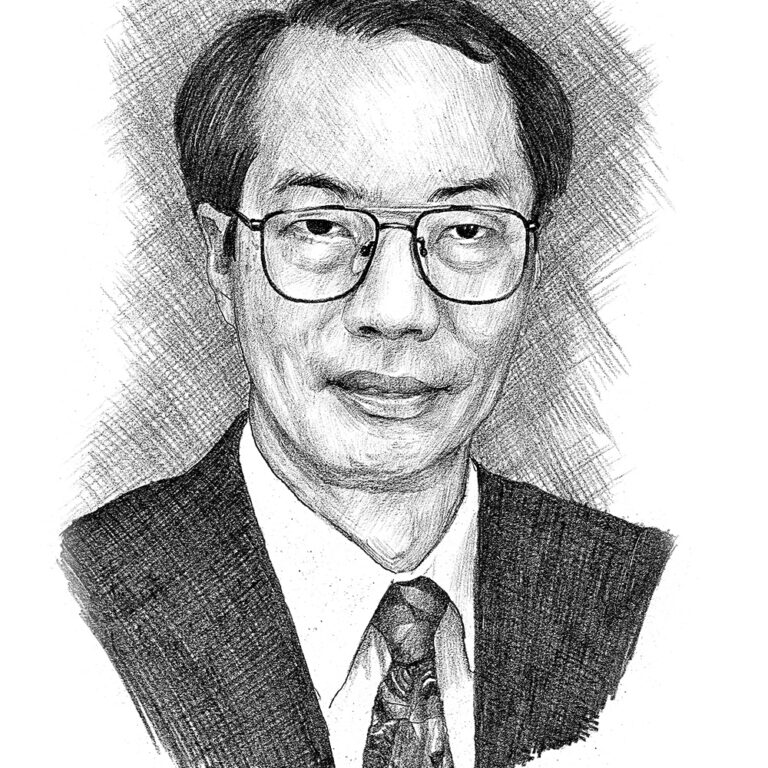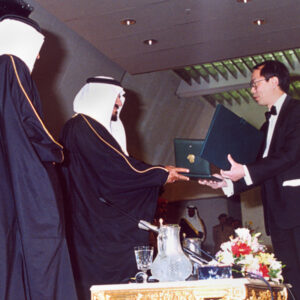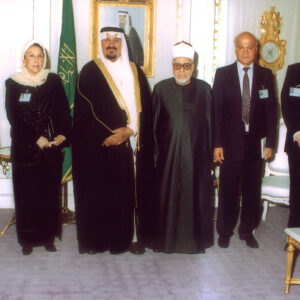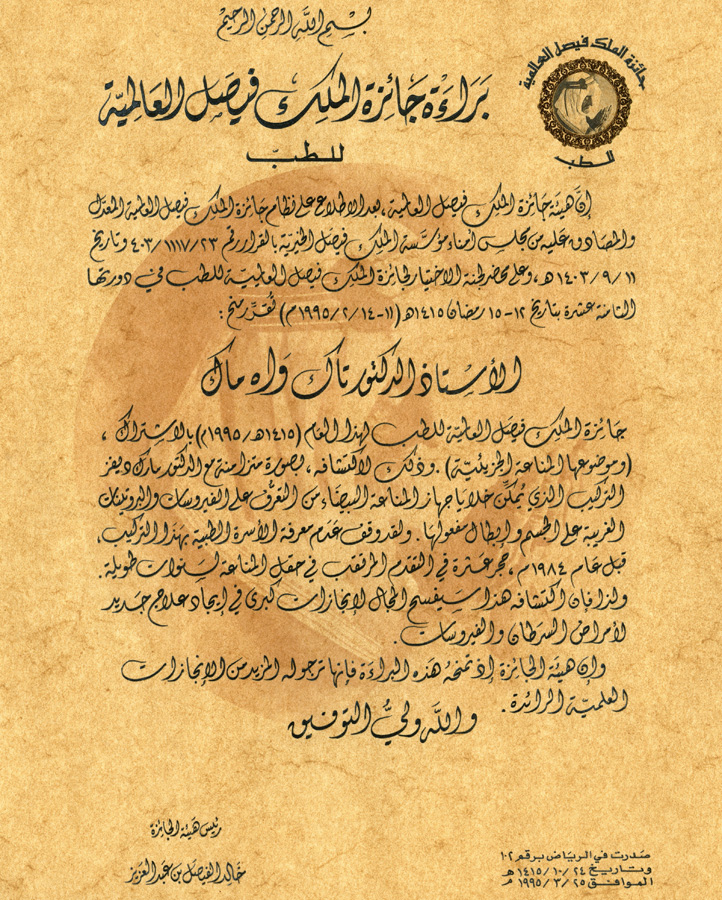

Professor Tak W. Mak
King Faisal Prize in Medicine 1995 Laureate
Topic: "Molecular immunology"
The support given here to me, and thus to the field of immunology, is indeed an indication that the scientific community believes in the importance of immunology to new progress in the cure of disease throughout the world

Tak Mak obtained his bachelor and master’s degrees from the University of Wisconsin in Madison, Wisconsin (USA), and Ph.D. from the University of Alberta, Canada. He joined the University of Toronto in 1974 and became a Professor at the Department of Medical Biophysics and the Department of Immunology in 1984. In 1991, he became head of the Department of Cellular and Molecular Biology at the Ontario Cancer Institute in Princess Margaret Hospital. He became Founding Director of the Amgen Institute of Toronto and Vice President of Amgen Inc. in 1993. Professor Mak also serves on numerous scientific advisory boards.
Professor Tak Mak is an internationally acclaimed scholar and leader in immunology research. His studies center on immune recognition and regulation, as well as cell survival and apoptosis (programmed cell death) in normal and malignant cells. He is best known for leading a group that first cloned the genes of the human T-cell antigen receptor. This discovery was a milestone in immunology and is now basic to our understanding of the immune response. His research included also the use of genetically altered mice to unravel intracellular programs governing the development and function of the immune system, and the dissection of signal transduction cascades in various cell survival and apoptotic pathways. His basic research on breast cancer contributed significantly to understanding cancer at the cellular level.
Professor Mak’s landmark scientific accomplishments are documented in over 250 publications, most of which are published in elite journals such as Cell, Science, and Nature. His research has had an enormous impact on immunologists throughout the world. He received numerous prestigious Canadian and International awards and honors. He holds Honorary Doctoral Degrees from several universities in North America and Europe. He is also a fellow of the Royal Society of Canada and the Royal Society of London (UK).
Professor Mak was awarded the E.W.R. Steacie Award of the National Sciences and Engineering Research Council in Ottawa, the Ayerst Award of the Canadian Biochemical Society, the Emil von Behring Prize, the Gairdner Foundation International Award, and the Gairdner Foundation International Award.
This biography was written in the year the prize was awarded.
- He held many positions including:
- Director of the Advanced Medical Discovery Institute at the University Health Network in 2002.
- Director of the Campbell Family Institute for Breast Cancer Research in 2004.
- He received many awards and honors including:
- Sloan Prize of the General Motors Cancer Foundation in 1996.
- Robert Noble Prize of the National Cancer Institute of Canada in 1996.
- Novartis Prize in Immunology in 1998.
- Officer of the Order of Canada in 2000.
- Foreign Associate of the National Academy of Sciences (USA) in 2002.
- Paul Ehrlich Prize Ludwig Darmstaedter Prize in 2004.
- Member of the Order of Ontario in 2007.
- Gold Leaf Prize for Discovery from the Canadian Institutes of Health Research in 2018.



